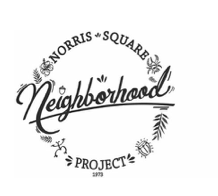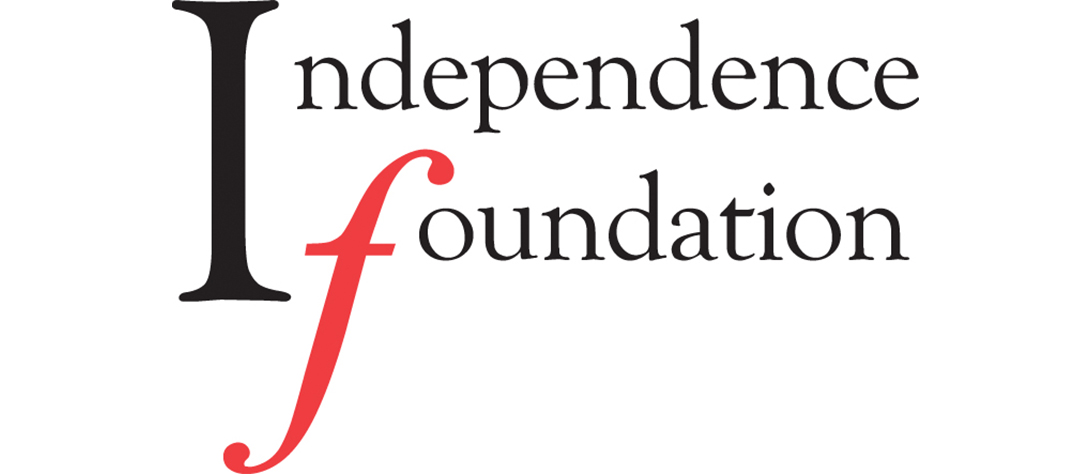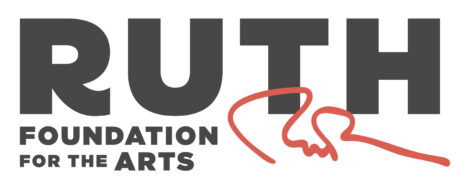

27th Annual
Arturo A. Schomburg Symposium Colorism: Shades of Oppression, Inclusivity, and Power
February 24, 2023 from 6:00pm to 9:00pm – February 25, 2023 from 9:00am to 4pm
Since 1997, The Annual Arturo A. Schomburg Symposium takes on a different yearly theme exploring various aspects of the intricate and complex relationship of the African Diaspora influences within Latin American culture abroad and in the US. Through formal presentations and Q&A’s, audience members engage in dialogues that promote increased understanding of our shared traditions and influences.
This year’s symposium delves into the origins and effects of Latinx Colorism and Anti-Blackness on individuals, families, communities, societies and systems. The presenters and panelists will help us to analyze and understand how people of color themselves/ourselves perpetuate racism and why it is crucial to acknowledge that complicity to create change.

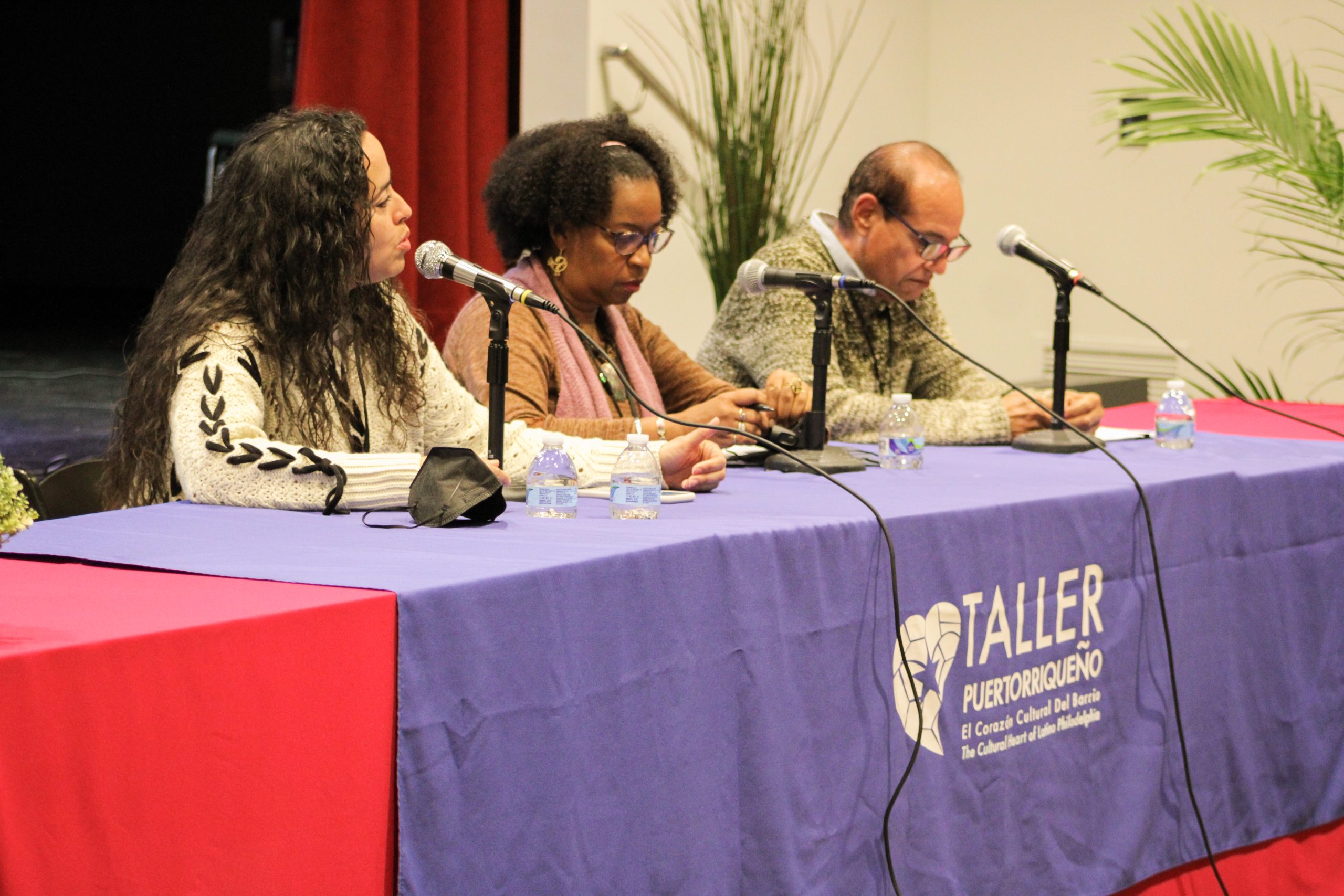
Bios:

Trapeta B. Mayson
Teacher, Social Worker and Poet Laureate of Philadelphia 2020-2021
Trapeta B. Mayson was born in Liberia. Her family immigrated to the United States when she was a young girl, and she was raised in Philadelphia, Pennsylvania. She earned her BA in Political Science and Master’s Degrees in Social Services and Business from Bryn Mawr Graduate School of Social Work and Social Research and Villanova University School of Business respectively. The author of two self published poetry collections, Mocha Melodies (Liberian Girl Publishing Company), and the chapbook She Was Once Herself (2012), Mayson also released the music and poetry projects SCAT and This Is How We Get Through, in collaboration with jazz guitarist Monnette Sudler. A Cave Canem, Pew, and Aspen Words fellow, she was awarded a Leeway Transformation Award and is a Pennsylvanian Council on the Arts grantee, among others. In addition to her poetry work, Mayson is a licensed clinical social worker and Chief Program Officer at a community mental health agency in Philadelphia, Pennsylvania. She is a member of the Greene Street Artist Cooperative and is the 2020-2021 City of Philadelphia Poet Laureate. In 2021, she received an Academy of American Poets Laureate Fellowship.

Iris Brown
Garden Co-Founder, Norris Square Neighborhood Project
NSNP’s ½ acre of urban gardens were created between 1980 and 2006 by the women of Grupo Motivos led by co-founders Iris Brown and Tomasita Romero, and community residents. Each of the six gardens represents and embodies the diversity of the Puerto Rican culture and West African diasporas in Philadelphia.
Meet the Presenters:
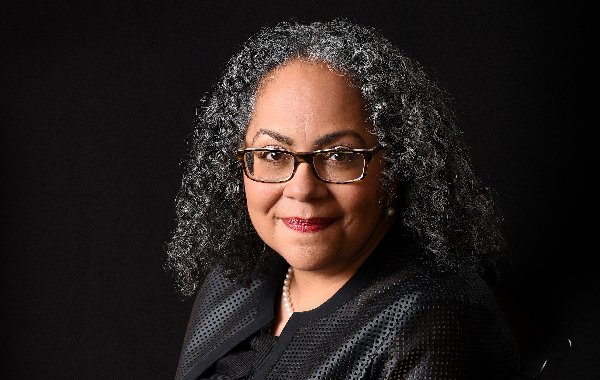
Tanya Katerí Hernández, J.D.
Archibald R. Murray Professor of Law at Fordham University, Associate Director of the Center on Race, Law, & Justice, Author of Racial Innocence: Unmasking Latino Anti-Black Bias and the Struggle for Equality
Tanya Katerí Hernández is the Archibald R. Murray Professor of Law at Fordham University School of Law, where she is an Associate Director of the Center on Race, Law, & Justice. Hernández is a Fulbright Scholar who holds an A.B. from Brown University and a law degree from Yale University. She is the author of many articles and the books: Racial Subordination in Latin America: The Role of the State, Customary Law and the New Civil Rights Response; Multiracials and Civil Rights: Mixed-Race Stories of Discrimination; and Racial Innocence: On Latino Anti-Black Bias and the Struggle for Equality (Beacon Press). She can be found on Twitter while it still exists @ProfessorTKH.
Purchase a copy of Racial Innocence: Unmasking Latino Anti-Black Bias and the Struggle for Equality at the Julia de Burgos Bookstore. She will be signing copies of her book during the closing reception at 4:00pm
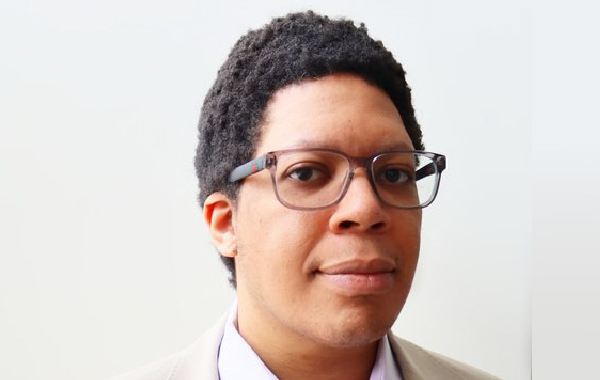
Ellis Monk, Ph.D
Associate Professor of Sociology at Harvard University
Author of The Unceasing Significance of Colorism: Skin Tone Stratification in the United States
Ellis Monk earned his Ph.D. and M.A. in Sociology from the University of California, Berkeley and a B.A. in Sociology from the University of Michigan, Ann Arbor. He previously taught at Princeton University and the University of Chicago. His award-winning research focuses on the comparative examination of social inequality, especially with respect to race/ethnicity, in global perspective. This research uses both quantitative and qualitative methods, while drawing heavily upon contemporary theories of social cognition and categories. By deeply engaging with issues of measurement and methodology, it examines the complex relationships between social categories and social inequality; and extends into topics such as social demography, health, aging, race/ethnicity & technology (e.g., artificial intelligence, machine learning, and computer vision), social psychology, sociology of the body, and comparative & historical sociology.
Professor of Philosophy of Education, Ethics & Anthropology of Education, and Ethics in the Humanities, Pontificia Universidad Católica del Perú
Visiting Scholar in the Center for Latin American & Caribbean Studies at Brown University
Luis Martin Valdiviezo Arista earned his EdD in Social Justice Education and his MEd in International Education at UMass-Amherst. Previously, he received his License in Philosophy and Bachelor in Humanities at Pontificia Universidad Catolica de Peru (PUCP) in Lima city. Based on intercultural, decolonial and critical education approaches, his research focuses on ethnicity, gender, social class, and formal education in Perú and Latin American societies. He is in charge of courses in Ethics and Philosophy of Education at PUCP.
Currently, he is a Visiting Scholar in the Center for Latin American & Caribbean Studies at Brown University. He is offering the undergraduate courses Andean-Caribbean Dialogues of Negritude and Different but Equal: Debates in Schooling of Indigenous and Afro-descendants in South America. In addition, he is doing research on the representations of women, indigenous people, and Afro-descendants in textbooks for primary education in Peru.
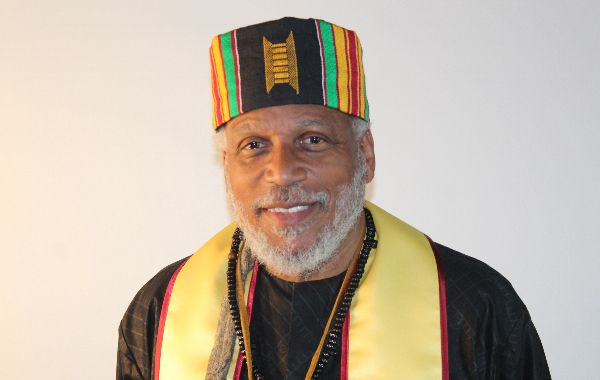
Dr. Onaje J. Muid
DSW, MSW, LMHC, CASAC Adjunct Assistant Professor LaGuardia Community College
Dr. Onaje Muid has served Puerto Ricans in New York City since 1980, when he first worked as a vocational counselor for Arawak Consultants in El Barrio. His thirty-five years in behavior health, primarily addictions, witnessed the destructive impact of colorism on people of African descent, either for Puerto Ricans and those enslaved in the United States.
He proudly recalls the honor bestowed upon him when he was invited to address the Segundo Congress De AfroDescendencia En Puerto Rico, in 2018, with the theme, Living Blackness. He is an adjunct assistant professor and LaGuardia Community College. He holds a master’s degree and doctorate in social work, a license in mental health and a credential in substance abuse (master level). He was inducted into the New York Academy of Medicine as a fellow in 2015. His current work is declaring and deconstructing racism as a public health crisis, particularly in the domain of black maternal mortality and black birth equity.

Erikka Goslin
MSS, LSW, Associate Director at Taller Puertorriqueño
With a background in Cultural Anthropology and Social Work, Goslin is dedicated to being an agent for social change to dismantle white supremacy, patriarchy, and imperialism in all forms. Her experience ranges from working in person-centered dementia care to conducting therapy focused on serving BIPOC, non-binary and Trans clients.
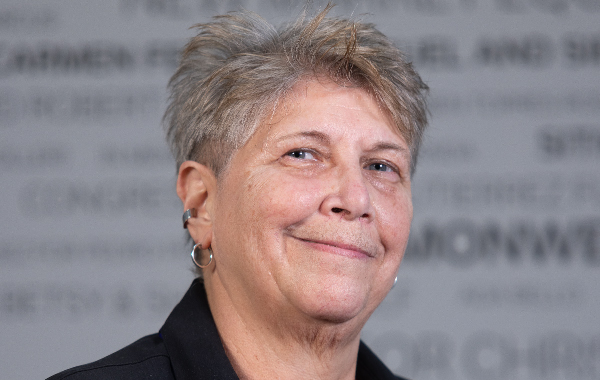
Elena M. DiLapi
QCSW, CCDVC, Principal of DiLapi Consulting and Chair of Taller Puertorriqueño’s Board of Directors
Ms. DiLapi is the founder and principal of DiLapi Consulting, an independent social work practice offering a range of individual, organizational and professional consultation services. DiLapi currently serves as the Chair of Taller Puertorriqueño’s Board of Directors, having been actively involved with Taller since 2001. Prior to her retirement, DiLapi served as the Director of the University of Pennsylvania’s Women’s Center for over 20 years. During her tenure at Penn, she brought national and international attention to the complexities of issues facing women in higher education and the role of campus women’s centers in helping identify and address those issues. She is recognized as a national and international leader for her work on violence against women, anti-racist feminism, and issues of intersectionality when addressing individual and institutional change. For over two decades, DiLapi taught at the University Pennsylvania’ s School of Social Work (now known as the School of Social Policy and Practice- SP2) focusing on racism and social change as essential to all social work practice. Through her research, publications, and professional experience, DiLapi continues to make valuable contributions to challenging all forms of oppression and promoting positive action for social justice.

DezMarie Thomas
Executive, Nutritionist, Confidence Coach, & Performing Artist
DezMarie Thomas is an executive, nutritionist, performing artist and confidence coach with a focus on BIPOC youth, specifically artists and athletes, and new mothers with children ages 0-5. She is especially energized by supporting her clients in living a sustainable lifestyle while reaching their wellness goals. Miss Thomas also enjoys giving back each year through her Black History Continues community event series with her nonprofit, The Fresh Heir Club for Youth & Black Culture. This project is personal to her as it leaves an imprint on both her community and her legacy. She also is sitting secretary on the board of the McCreesh Advisory Council in Southwest Philadelphia for the past five years during their new rehab to better programming and reduce gun violence.
For the past five years, Miss Thomas has run a youth activity company called Mindful Arts Dance Academy where she has coached underserved youth through underrepresented sports, including skateboarding and gymnastics. She has been able to get her company to 5 figure net profit in less than five years and inspired hundreds of youth along the way. Prior to running her company, she has coached many athletes in their journey to regional and world titles in her over a decade of teaching experience. Along with being a USAG, USAIGC, CPR certified coach in her career, Miss Thomas currently holds a BS from University of Delaware in Nutrition with a minor in Dance and Biology.
Thomas carries on her family legacy as she is the great-great granddaughter of the late Arturo Alfonso Schomburg.

Katelina "La Gata" Eccleston
Music Historian, Creative, and Entrepreneur
Internationally renowned music historian, creative and entrepreneur whose work is focused on the analysis and social paradigms of Reggaeton. Her entrepreneurial spirit and ambitions have led her to create The first femme Platform dedicated to the intersectional history and analysis of Reggaeton, Reggaeton Con La Gata. She helped shape the landscape of Reggaeton in high profile projects like Netflix’ Premiere Reggaeton Comedy Show: NEON by Shea Serrano, MTV Paramount Studios De La Calle, Spotify Studios & Futuro Studios critically acclaimed podcast LOUD: The History of Reggaeton and more. Her commentary is shared in publications such as The Washington Post, Rollingstone, TIDAL and many others–promoting the genre as one that is “Intelligent, Political and Black.” Katelina is one of Huffington Post’s 2022 Culture Shifters of The Year.

Malín Falú
Producer, Radio, Television Personality, and Model
Melba “Malín” Falú Pesante, model, producer, radio and television personality, was born June 28, 1946, in la Parada 22, Santurce, Puerto Rico to María Magdalena “Malen” Pesante Santana and Juan “Juanín” Falú Zarzuela, founder of the League to Promote the Advancement of Blacks in Puerto Rico (1939). Her grandfather Pedro Falú was the first Afro-Puerto Rican Santurce Municipal Assembly president.
In 1975 Falú moved to New Jersey where she translated into Spanish state civil service exams. The Puerto Rican Congress hired Falú to lead their Comprehensive Employment and Training Act (CETA) initiatives. She was a mass media assistant producer for the New York State Education Department and on New Jersey Network created women-centered television programming from 1976 to 1977.
Falú grew her New York City audience while on WADO Reloj, 1280-AM, between 1978 and 1985). She produced Mi Casa el Su Casa and then co-hosted Café con Leche on WJIT-1480-AM, from 1985 to 1989. Falú hosted the evening Hablando con Malín that quickly moved to the coveted morning slot and transmitted specials from Latin America, Europe, and the Middle East on WJIT-1480-AM, from 1989 to 1990 and WADO-1280-AM, from 1990 to 2001. Listenership increased by 700% and Arbitron/ Nielsen ranked it in the NYC top ten radio shows (1998). Hispanic Information and Telecommunications Network broadcast Falú in the nationally Beacon Award-winning Diálogo de Costa a Costa from 2004 to 2012; and she anchored Enterate on ESPN-1050-AM, from 2015 to 2018.
In 1992 Falú was the last to interview the “Queen of Latin Soul,” Afro-Cuban singer La Lupe. Other luminaries included Celia Cruz, Afro-Borinqueños Marta Moreno Vega, Juan Boria, Felipe Luciano, Piri Thomas and “Tite” Curet, New York City Mayor David Dinkins and First Lady Hillary Clinton. Comparisons to Oprah Winfrey and Barbara Walters abound due to Falú’s intimate on-air style.

Blanca Pacheco
Co-Director, New Sanctuary Movement of Philadelphia
Blanca is a single mom originally from Ecuador and has lived in Philadelphia for over 20 years. She is a passionate community organizer and has been working with the immigrant community since 2006, first as the Program Coordinator at Open Borders Project where she taught computer classes and coordinated the education program. Blanca was a founding member of NSM. As a member, she helped create Know Your Rights training, and the storytelling project and attended New Leadership School. She joined NSM’s Board and in 2012 came on as a community organizer. She was part of the successful campaign to stop collaboration between Philadelphia Police and ICE. Blanca organized three out of our four successful Sanctuary campaigns where families choose to challenge their deportation orders and has helped grow the organization over the last 12 years. Blanca is currently leading programs and campaigns at NSM as Co-Director.

Jennifer Mota
Visual producer, International Multimedia Journalist, Culture Expert, Clothing Designer, and Music Industry Culture Shifter
Jennifer Mota is a Philadelphia-raised Dominican-American critically acclaimed visual producer, international multimedia journalist, culture expert, clothing designer, and music industry culture shifter. As a storyteller, most of her work focuses on the intersections of race, sex, and gender in music, Latine culture, and Caribbean identity. While studying at Community College of Philadelphia and Temple University, she began creating and altering her own clothes. Eventually, she created her own clothing brand which later opened doors in the Philly music scene. Her intersectional storytelling on identity and the creatives making change in the city garnered local attention and became the portfolio that opened doors in Latin media.
Spearheading deep dives and visual productions on reggaeton and Afro-Latine stories during her time as a digital assistant for People en Español’s English-language vertical People Chica, she produced and interviewed stories highlighting old school and new talent of the movement.
In 2019, she wrote Recognizing Dominican Dembow: From Jamaica to El Alfa — the first investigated deep dive documenting Dominican dembow for U.S Latin mainstream media, highlighting the history and pioneers behind the sub-genre. Her expertise in the dembow scene scored her a monthly column in Remezcla entitled “Si Tu Quiere Dembow,” where she reported on the genre’s past and present. Throughout the years, she’s interviewed some of the most prominent Latina artists in the world including Ivy Queen, Tainy, Sech, J Balvin, Ozuna and many more writing for Rolling Stone, Highsnobiety, Teen Vogue, VIBE, Pitchfork, Tidal, Billboard, The Fader and many more. Her on-camera catalog includes platforms like Yahoo’s Live Build Series, The Fader, The Boiler Room’s “Deconstructed Series,” Noise Colectivo, Rapeton and Twitch. Throughout the course of her career she’s written various culture shifting pieces and deep dives including “Dominican Spanish Isn’t “Bad Spanish” — That Mentality Is Rooted in White Supremacy” , “Navigating Body Politics: My Journey with the Santa-Puta Complex” , and “How Hookah Infiltrated Dominican Music” for GQ Middle East alongside Journalist Nilo Tabrizy.
In 2020 in the wake of George Floyd’s death and protests against police brutality, Mota joined forces with colleague, reggaeton historian, and founder of Reggaeton Con La Gata Katelina Eccleston. Through their journalistic and multimedia work, they appeared on a plethora of panels speaking on racism in the Latin music industry and the cultural, social, and political nuances of El Movimiento — the term prioritized in replacement of the term “urbano.” This would lead to the birth of “Dimelo Cantando,” a podcast in partnership with Noise Colectivo and Reggaeton Con la Gata, where they tackled topics on Black erasure in music, love, queer identity, and sex while also shedding light to the social, political, and economic gaps that exist between Black and white artists in the Latin music industry. As an independent creator and entrepreneur, she’s worked in the media, DSP and record label industry as a content producer, consultant and copywriter. Besides documenting music of the diaspora, she has become an authority in artists branding and a Latine-marketing strategist for U.S-based artists and major labels. In 2020, she created El Recap, a multimedia storytelling platform that focuses on music and artists of the Dominican Republic and created bridges of visibility in the streaming and media for artists.
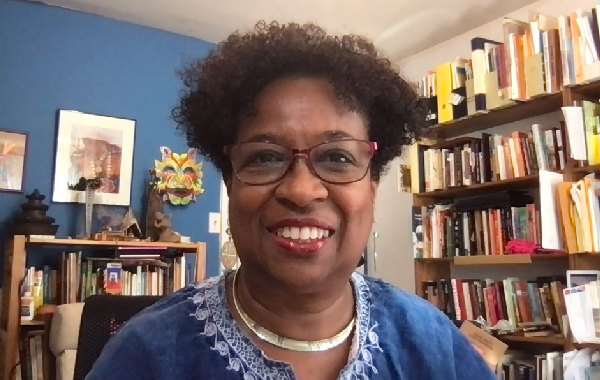
Evelyne Laurent Perrault, Ph. D.
Assistant Professor at University of California in Santa Barbara
Currently an Assistant Professor at University of California in Santa Barbara, Evelyne is well-known to this symposium as a founder, and an Afro-Latina activist and scholar, born and raised in Venezuela from Haitian and Venezuelan parents. She has studied, lived, and traveled through Europe, Africa, Latin America, North America, and the Caribbean. She has a Licenciatura (Licentiate) Degree in Biology from the Central de Venezuela, her PhD from the History Department, New York University’s (NYU) African Diaspora program in Latin America and the Caribbean. She has presented at various universities and conferences in the United States and abroad, and has been the recipient of several fellowships. While on staff at Taller Puertorriqueño, Evelyne conceived the Annual Arturo Schomburg Symposium. Currently she is an Executive Board Member of the Association for the Study of the Worldwide African Diaspora (ASWAD).
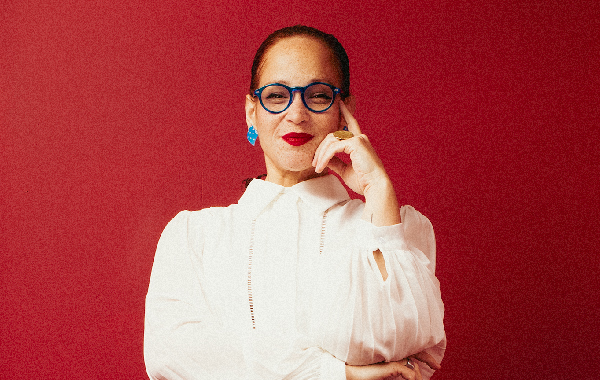
Nasheli Ortiz González
Executive Director at Taller Puertorriqueño, Fashion Designer, and Entrepreneur
As a native of Puerto Rico, a respected academic leader, and a creative entrepreneur committed to social justice, Ortiz González brings a unique set of skills to the Executive Director role at Taller. In her roles as Associate Professor and Chair of Fashion Design at Moore, Ortiz González developed a department that pairs a humanistic approach with a cutting-edge global vision. Ortiz González is a highly sought-after fashion designer who serves as the principal owner of Nasheli Juliana (NJ), an apparel company focused on social justice, as well as co-founder and principal of 22 studio, a women-led transdisciplinary design practice that operates between the United States and Puerto Rico. She is also a founding Board Member of the Philadelphia Fashion Garment and Industry Task Force, a group for professional and business development, education, trade events, supply chain and local manufacturing, social impact and sustainability in the city. Her fashion designs have been shown at Paris, London, New York, and Miami Fashion Weeks, to name just a few. Ortiz González’s work has been featured in Vogue, Harper’s Bazaar, GQ, and Forbes, among other prestigious publications. In 2020, she was featured in the Netflix series “Next in Fashion,” and was named as one of Al DÍA News’ 40 Under 40.
Program of Presentations
FRI. 2.24 Opening Reception Schedule:
This event is BYOB.
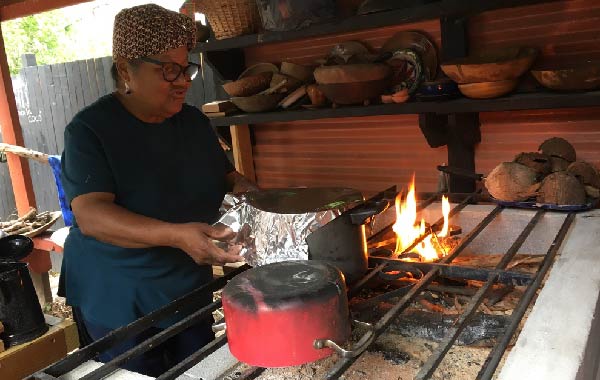
6:00PM Culinary presentation with iris brown
Nourish body and soul, with a culinary presentation of traditional cuisine of Loíza, Puerto Rico by Iris Brown of Norris Square Neighborhood Project. We will share a meal together and learn about the direct African roots of the food and culture of Loíza.
Traditional Cuisine from Loíza Puerto Rico: Salad with pigeon peas with and without fish, coconut milk rice, and Puerto Rican iced tea.

6:45PM Poetry Workshop with Trapeta B. Mayson
Trapeta Mayson, 2020-21 Poet Laureate of Philadelphia, will lead us in a poetry workshop focused on building connection through poetry and embodied self-expression. The aim is to bring together attendees of the symposium to begin to reflect on the theme of Colorism, foster a shared space of creativity and to guide participants through the process of writing their own poem, and perhaps even sharing it.
SAT. 2.25 Symposium Schedule:
Live Virtual Stream will be available for this event.
9:00 am - 9:20 am Cafecito Breakfast
Enjoy some bread, cheese, pastries, coffee, and tea.
9:20 am - 9:40 am Introductions & Libation
Moderated by Evelyne Laurent Perrault, Erikka Goslin, and Nasheli Ortiz González
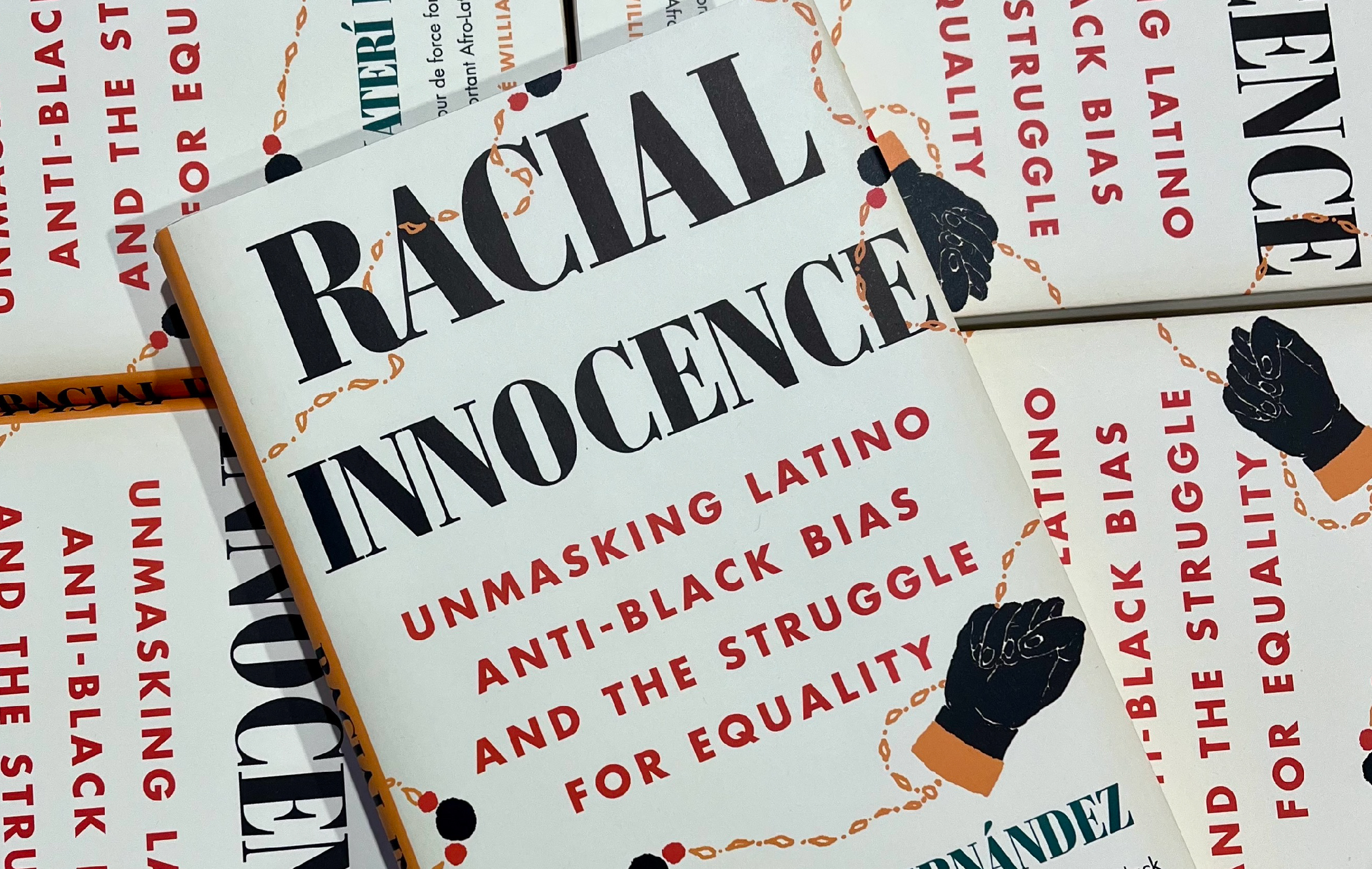
9:40AM - 10:20AM TANYA KATERÍ HERNÁNDEZ
Latino Racial Innocence
Hernandez will share the insights from her recent book “Racial Innocence: Unmasking Latino Anti-Black Bias and the Struggle for Equality,” which documents the ways in which Latino colorism is part of Latino anti-Black racism.
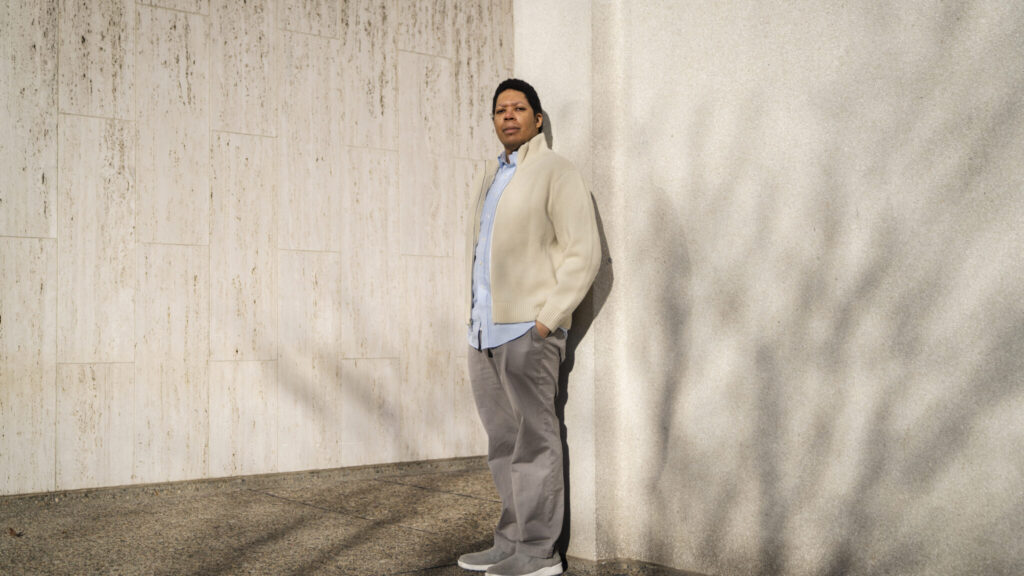
10:3oAM - 11:10AM Ellis P. Monk
The Consequences of Colorism
Colorism, discrimination on the basis of skin tone, is a long-standing and global phenomenon. This presentation will focus on the manifold consequences of colorism in the United States, from health disparities to the criminal justice system to technology.
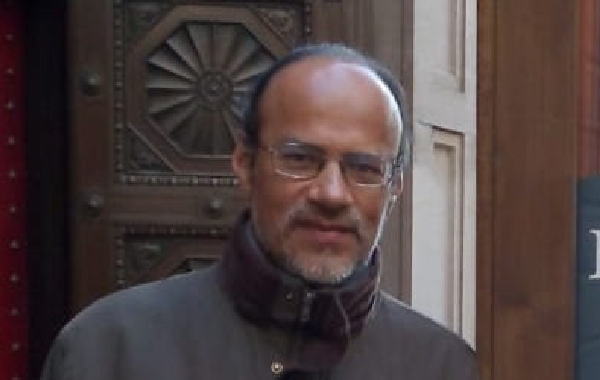
11:20AM - 12:00PM LUIS MARTIN VALDIVIEZO ARISTA
Avatares de la Identidad: del mestizaje al colorismo.
En el virreinato del Perú la mayoría de las interrelaciones personales transgreden el orden colonial basado en la división entre españoles, indios y africanos establecida en el siglo VXII. La clasificación dentro del concepto de mestizaje de las diversas modalidades de reproducción social que surgían de estas interrelaciones fue una manera de mantener la dominación sobre una heterogeneidad social en expansión. Fundada la República del Perú en el siglo XIX, este imaginario social no desapareció pues no hubo una discusión crítica sobre estas creencias y prácticas coloniales en la esfera pública ni en el sistema educativo. Ese vacío y la persistencia de la mentalidad colonial durante la República dio paso a las estrategias de blanqueamiento dentro del mestizaje tanto a nivel individual como político. El colorismo puede interpretarse como una consecuencia de estos procesos de dominación social inducidos por las ideologías racistas. Cuáles son las consecuencias morales de estos prejuicios en la construcción de nuestras identidades individuales y colectivas? ¿Qué obstáculos acarrea el colorismo para el desarrollo humano?
12:10PM - 1:00pm Plenary Q&A
Attendants can participate in a Q&A session for the speakers.
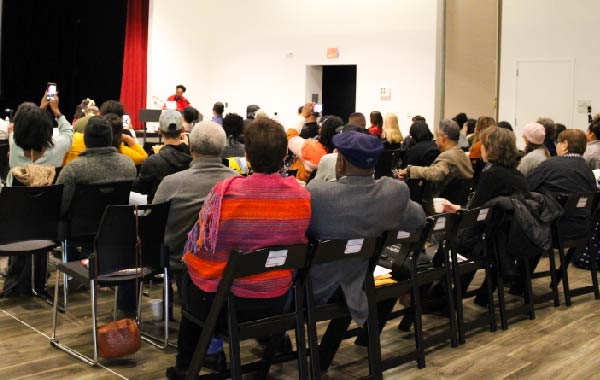
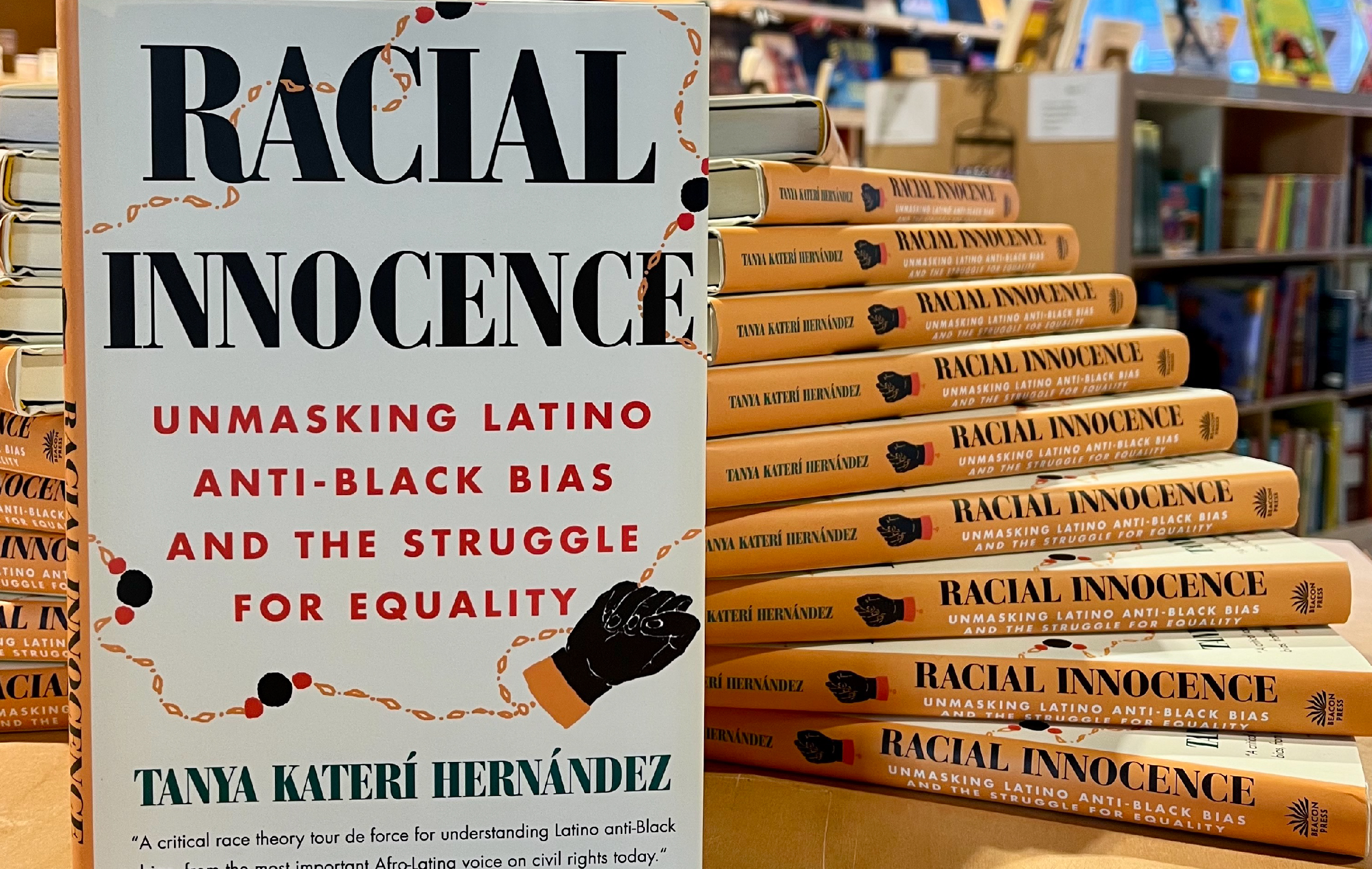
1:15PM - 2:15pm SOCIAL WORK ROUNDTABLE SESSION / Lunch break
“Colorism: Implications for Social Work Practice”
Featuring Facilitators: Dr. Onaje J. Muid, Erikka Goslin, and Elena M. DiLapi.
Practicing Social Workers who wish to receive continuing education credits must participate in the session and pay the $40 CEU Add-on to receive the CEU’s.
Other attendants will be able to take a break to eat lunch. Catering provided by Alta Cocina
Book-signing of Racial Innocence: On Latino Anti-Black Bias and the Struggle for Equality by Tanya Katerí Hernández
Organizations GALAEI and Villanova’s Albert LePage Center for History in the Public Interest will be tabling.

2:30PM - 4pm PANEL DISCUSSION
“The Personal & the Political: Colorism in our Everyday Lives”
The afternoon panel includes activists, artists, community members, and professionals who will discuss how colorism has shown up in their work, and in their professional and personal lives. Panelists will share reactions to analysis of the morning presentations as well as open up to audience participation with time for Q&A.
Featuring Panelists: DezMarie Thomas, Katelina La Gata Eccleston, Malín Falú, Blanca Pacheco, and Jennifer Mota.
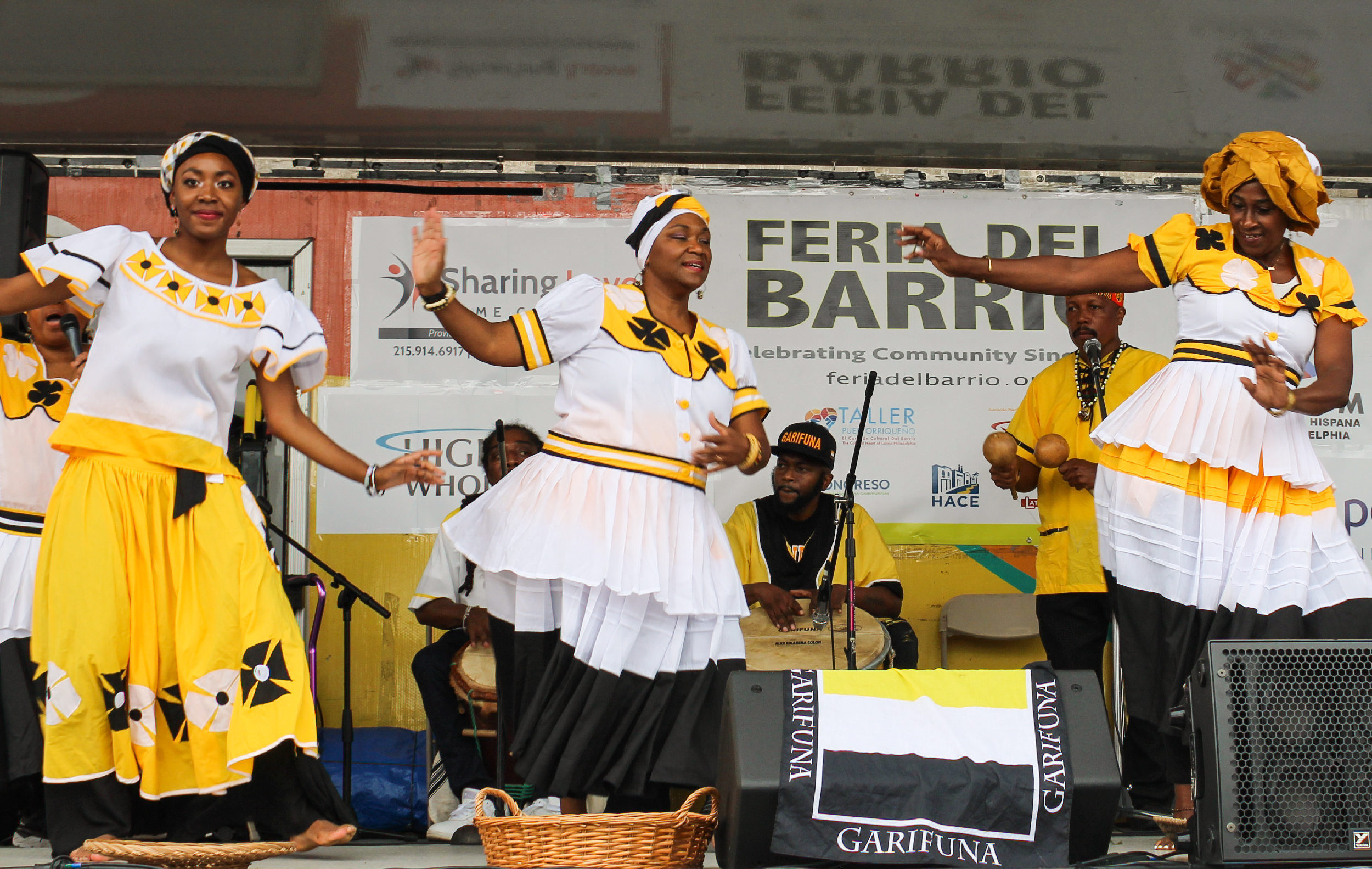
4pm Closing reception Mixer
A closing celebration after the symposium. All are welcome to stay to chat and enjoy some refreshments.
Performance by Hamalali Garifuna
Refreshments provided by Alta Cocina
$0 Students / Local Residents / Community Members Ticket:
If you are a student, community member, local resident, or the cost of a ticket would prevent you from attending, reserve your ticket here at no cost. This helps us track the headcount and manage capacity. Donations are always welcome!
$20 Global Majority Ticket
Global Majority is a collective term that refers to people who are Black, African, Asian, Brown, dual-heritage, indigenous to the global south, and/or, have been racialized as ‘ethnic minorities’ and encourages us to think of ourselves as belonging to the majority on planet earth. Globally, these groups currently represent approximately eighty percent (80%) of the world’s population, making us the global majority. (2020, Rosemary Campbell-Stephens, MBE). If you identify as part of the Global Majority reserve this ticket.
$25 General Admission Ticket:
This ticket is for anyone who does not identify as Global Majority, as defined above or if the cost of this ticket would not prevent you from attending.
$40 Social Work CEU Credit Add-On
This is an add-on cost for practicing Social Workers who wish to receive continuing education credits.


